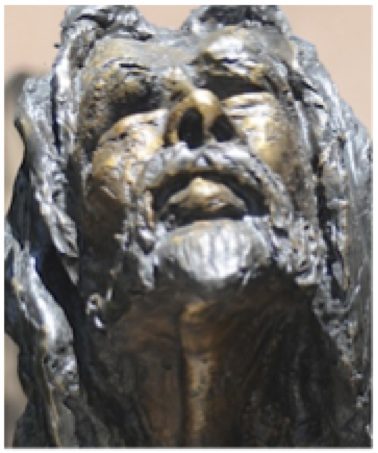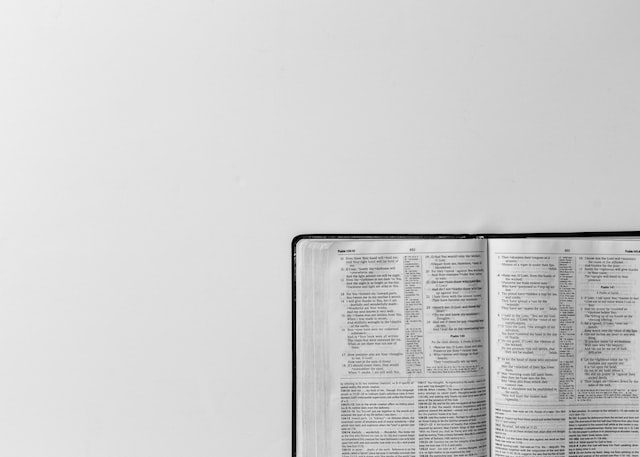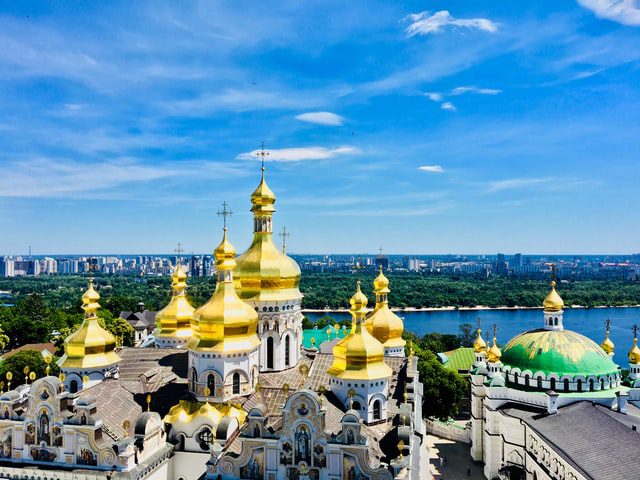 In recent weeks, my wife and I have been tag-teaming on a sermon series devoted to questions that our youth have been asking. One of the most recent of those, was the question,
In recent weeks, my wife and I have been tag-teaming on a sermon series devoted to questions that our youth have been asking. One of the most recent of those, was the question,
“Why do I pray for other people and myself?” It’s a question a lot of us ask ourselves and it prompted me to think back across the shape of my prayers, which I had never really attempted.
As far as I can remember, as a child my prayers were mostly for protection. Inevitably, I associated God with my parents. They loved me and cared for me, they protected me and sheltered me. So, most of my prayers were simple and direct. I prayed for God to care for my parents, to watch over my baby brother and sister. I prayed at meals and at bedtime. I prayed when I was scared.
The two prayers I remember saying as a child were the Lord’s Prayer and a bedtime prayer. I was required to memorize the Lord’s Prayer — along with the 23rd Psalm — and it was reinforced time and again by church services. As I look back on it, my bedtime prayer was a bit shocking really: “Now I lay me down to sleep, I pray the Lord, my soul to keep and if I should die, before I wake, I pray the Lord my soul to take.” That prayer, alone, probably explains why so many of my prayers were about protection!
In many ways, my prayer life didn’t really change much as a teenager. Like a lot of adolescents, my fears receded into the background and I was constantly busy – with school, with friends and with plans for the future. I still prayed and some of the patterns that shaped my life as a child hung on. But I dropped the bedtime prayer somewhere along the way, and I also paid a little more attention to the prayers we said in church – sometimes.
Late in my adolescence, my prayers began to change. The catalyst was a car accident. In the middle of my senior year in high school, our debate team and coach were on our way to an invitational tournament in Bardstown, Kentucky. Halfway there on snow covered roads, our coach lost control of the car, and we fish-tailed into a head-on collision with a two and half ton truck. Our coach and teacher died and the four of us who were students spent a long time in the hospital and a longer time recuperating.
That experience didn’t change my prayer life over night, but it did shift things. Over time I began to pray more. I began to pray that more of my life would be lived out in deep connection with God, and I prayed a lot about what God wanted me to do with my life.
That change wasn’t driven by fear. But it was driven by the realization that life is fragile, and I wanted to live my life in as close a connection with the purposes of God as was possible. Prayer seemed to be the best way to do that, and I found myself praying prayers that were marked by more conversation than they had been in the past.
The other influence the accident had on my prayer life was more subtle, but it was and has been significant. You see, for a lot of people, the question about prayer is always a pragmatic one: “Does prayer work and, if it doesn’t, why do it?” But that question has never really been a very good one from my perspective.
You see, by the time the accident was over, there were already prayers I couldn’t pray: “Please, God, don’t let us be in an accident.” “Please, God, don’t let our coach die.” When we treat prayer like a strategy for fixing things, rather than as a conversation with the living God who comes alongside of us in times that are both good and bad, we have it all wrong.
Our lives are bounded by our mortality. No one lives forever. Not every illness goes away. Not every obstacle in life can be swept away. Some of the most important things you and I will ever do will not be things we do or accomplish because all the hard places have been made easy. And the purpose of prayer is not to provide a way out of those realities, but through them.
The prayer life of Jesus should be enough to make that clear. His life is marked by an intimate acquaintance with his Father. His ministry was shaped by powerful prayers for himself and for others. But his message met with resistance and indifference. His disciples left him. His opponents conspired to take his life. And he was executed like a criminal. What would it mean to say, “If prayer is worth it, it ought to work?”
I think it is more accurate to say that — come what may — prayer is the act of putting our lives back into the hands of God, no matter what happens to us. And we are invited to do that until the day in which we find ourselves in God’s presence.
That last point, though, has become more and more central to my prayer life as time has gone on. I still pray for myself and for friends. I pray for healing. I pray for friends who are unemployed to find jobs. I pray that people will find guidance and joy. But more and more I pray for two things: I pray that I will be available to the purposes of God, and I pray to see the face of God.
That first prayer for availability to the purposes of God is profoundly important. Far too often, we have offered the Christian faith as a self-improvement regimen. “God’s got stuff. God wants to give you stuff. Pray and God will give you stuff.” But Jesus didn’t recruit his disciples on the premise that if they followed him, they would be healthy, wealthy and wise. He invited them to take up their crosses, to do the work of the Kingdom, to preach the Gospel and to baptize people into the body of Christ. In short, he invited them to share the good news that others could find forgiveness, love, and wisdom that would change their lives in the name of changing the world.
That’s a much bigger adventure than getting God to curate our lives, as if he was a cosmic interior decorator. And it’s an invitation to give ourselves to work that will outlive us and matter for ever.
But I don’t think we see it that way very often. Book clubs, movie groups, community gardens and a hundreds of other things that we do as a church are all great stuff, and they no doubt help to build friendships in any church. But I find myself wondering, “When, if ever, do we pound on the gates of hell by giving ourselves to the transformation of lives trapped by loneliness, addiction, greed, and mind-numbing routine of consumerism?” That’s the real mission of the church and the prayer that matters there is the prayer of Jesus: “Not my will, but your will be done.”
The other prayer – the prayer to see the face of Jesus – is closely related. It is what the ancient church refers to as the beatific vision of God. Seeing God, face to face. When the ancient church talked about this experience, in a sense, they had in mind the ultimate goal of that mission that I just described. When we are completely healed and restored to complete communion with God – when our relationship with God and with one another has been remade by God’s love – then all the obstacles to seeing God face to face will be swept away. Sin, fear, selfishness, and all of those things that stand in the way will no longer obscure our vision of God.
But, even though that kind of clarity is usually only available on the other side of life, it is also possible to make progress toward that experience in this life. It is possible to see the face of God in the faces of those around us. It is possible to surrender ourselves to God’s work in and through us. It is possible, by God’s grace to set aside more and more of those things that keep us from being available to God. As we do, the work of God’s love penetrates ever deeper layers of our lives. That experience happens in prayer, because seeking the face of God means setting aside all of those distractions that are given over to lesser gods and purposes that are unworthy of us as the children of God.
That might all seem a rather other worldly vision of prayer, but actually, I have found it life-giving. Prayer – far from separating me from life – has given me more reason to engage life and to do it with energy and courage. I no longer see life as a dragon to be slayed or a thing to be feared, but as a world that God is redeeming moment by moment – driving light further and further out and into the world. And prayer is the means by which we can all give ourselves to that adventure.
How then do we pray?
First, knock down the gates of hell. If we fail to do that, we are failing in our mission as a church and as Christians.
Second, pray boldly.
Third, pray to see God. Learn to be quiet. Offer yourself.
Then wait for the adventure…












